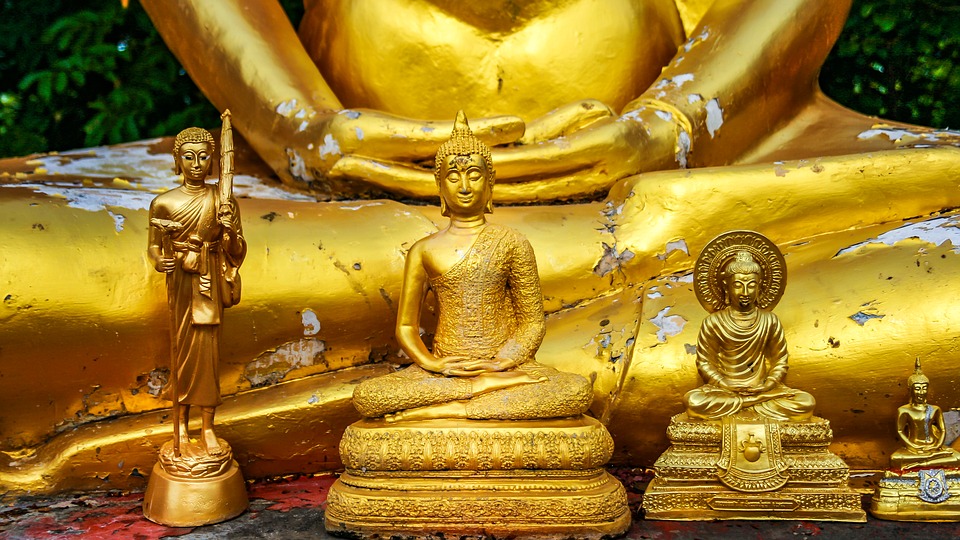When you go and visit somewhere new it is hard to avoid making comparisons. Earlier this month I was lucky enough to visit Thailand. I had no pre-conceptions about my visit, other than that the city of Bangkok was supposed to be insanely busy with grid-locked traffic, noisy and a bit outrageous.
It’s a fascinating country. Did you know that Thailand is the only country in south-east Asia to have escaped colonial rule? Its major religion is Buddhism and it has a society and political system shaped partly by the military and the monarchy. Its constitutional monarch, King Bhumibol Adulyadej, assumed the throne in June 1946 and until last month was the world's longest reigning monarch, until his death at the age of 88.
We happened to visit the country shortly after his death, so the Bangkok I visited was a little subdued. The death of the King had had a profound affect, not just on Bangkok but seemingly on the whole of Thailand. Almost every adult was dressed in black as a sign of respect and grief. All the pictures of the King had been changed from colour to black-and-white and all the TV channels had been replaced with black-and-white royal broadcasts. There were shrines to the King in many public places and meters and meters of black-and-white ribbon beautifully tied along the walls of buildings.
We were lucky to be taken around the city by three local Thai ladies. When we approached the outside of the Grand Palace they told us that the King was inside lying in state. The official period of mourning for the King is one year and it is thought that during the twelve months most Thai people will want to come and pay their respects. There were long queues of people waiting to see the King and stalls set up next to the queue giving out free food and drink.
The unified reaction to the King’s death was quite startling and made me think about the concept of collective consciousness.
Collective consciousness is the set of shared beliefs, ideas and moral attitudes which operate as a unifying force within society. The term was introduced by the French sociologist Emile Durkheim in his Division of Labour in Society in 1893. Durkheim argued that in so-called “traditional” societies (those based around clan, family or tribal relationships), totemic religion played an important role in uniting members through the creation of a common consciousness. In societies of this type, the contents of an individual's consciousness are largely shared in common with all other members of their society, creating a mechanical solidarity through mutual likeness.
What struck me so clearly was how much the event of the King dying had affected everyone. The Thais we met were so gentle and respectful and their collective grief and sense of loss was palpable. But the sincerity of their Buddhist faith came through very strongly. Buddhism is a religion where there is disengagement from craving and clinging to impermanent states and things. The Thai grief hat we witnessed was very dignified.
I couldn't help but compare the way the Thai people had reacted with a collective consciousness to the death of their King with the way we would react in the UK. I was humbled by their respect and generosity. Perhaps there was a similar sense of loss when Diana, Princess of Wales was so tragically killed back in 1997, but rarely am I struck by such a sense of one event having such a profound effect.
I had an amazing experience visiting Thailand and am grateful for being able to visit at such an emotional time of transition.
It’s a fascinating country. Did you know that Thailand is the only country in south-east Asia to have escaped colonial rule? Its major religion is Buddhism and it has a society and political system shaped partly by the military and the monarchy. Its constitutional monarch, King Bhumibol Adulyadej, assumed the throne in June 1946 and until last month was the world's longest reigning monarch, until his death at the age of 88.
We happened to visit the country shortly after his death, so the Bangkok I visited was a little subdued. The death of the King had had a profound affect, not just on Bangkok but seemingly on the whole of Thailand. Almost every adult was dressed in black as a sign of respect and grief. All the pictures of the King had been changed from colour to black-and-white and all the TV channels had been replaced with black-and-white royal broadcasts. There were shrines to the King in many public places and meters and meters of black-and-white ribbon beautifully tied along the walls of buildings.
We were lucky to be taken around the city by three local Thai ladies. When we approached the outside of the Grand Palace they told us that the King was inside lying in state. The official period of mourning for the King is one year and it is thought that during the twelve months most Thai people will want to come and pay their respects. There were long queues of people waiting to see the King and stalls set up next to the queue giving out free food and drink.
The unified reaction to the King’s death was quite startling and made me think about the concept of collective consciousness.
Collective consciousness is the set of shared beliefs, ideas and moral attitudes which operate as a unifying force within society. The term was introduced by the French sociologist Emile Durkheim in his Division of Labour in Society in 1893. Durkheim argued that in so-called “traditional” societies (those based around clan, family or tribal relationships), totemic religion played an important role in uniting members through the creation of a common consciousness. In societies of this type, the contents of an individual's consciousness are largely shared in common with all other members of their society, creating a mechanical solidarity through mutual likeness.
What struck me so clearly was how much the event of the King dying had affected everyone. The Thais we met were so gentle and respectful and their collective grief and sense of loss was palpable. But the sincerity of their Buddhist faith came through very strongly. Buddhism is a religion where there is disengagement from craving and clinging to impermanent states and things. The Thai grief hat we witnessed was very dignified.
I couldn't help but compare the way the Thai people had reacted with a collective consciousness to the death of their King with the way we would react in the UK. I was humbled by their respect and generosity. Perhaps there was a similar sense of loss when Diana, Princess of Wales was so tragically killed back in 1997, but rarely am I struck by such a sense of one event having such a profound effect.
I had an amazing experience visiting Thailand and am grateful for being able to visit at such an emotional time of transition.


 RSS Feed
RSS Feed
